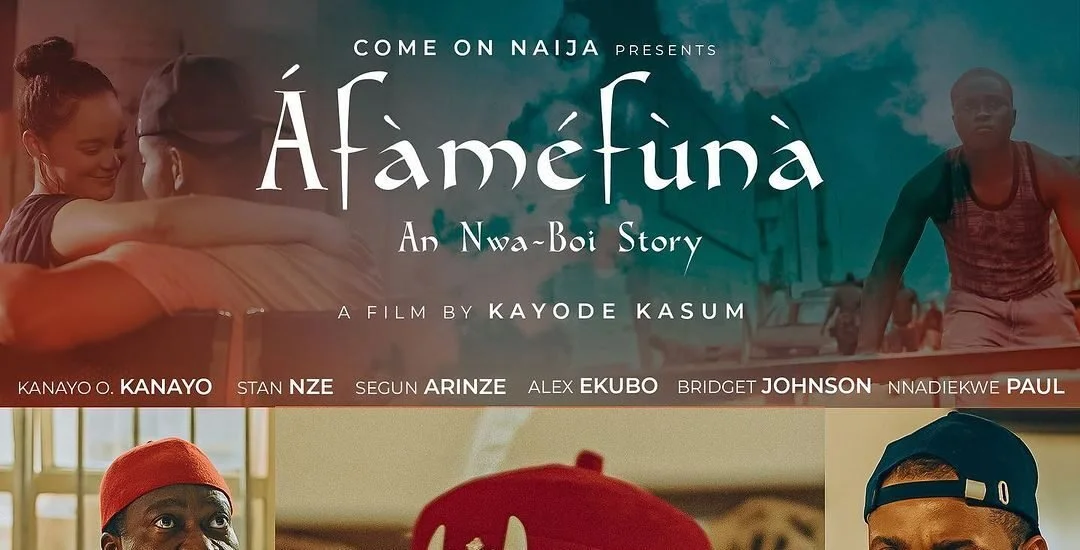Afàméfùnà: An Nwa-Boi Story” showcases cinematic glimpse of the aftermath of the civil war in Nigeria
Afàméfùnà: An Nwa-Boi Story” is a mixed story showcasing three things: Igbo individuals experiencing relocation from Igboland to Yorubaland to hustle, shedding light on the misconception among Yoruba in Lagos that all Igbos in Lagos are the same. This movie also showcases integrity, cowardice, and a glimpse of the aftermath of the civil war in Nigeria. It portrays the aspirations of many boys working for their bosses with happiness and joy, dreaming of owning their businesses someday. A surprising aspect was the writer's mention in the Harvard Business Review about "Stakeholder capitalism." The revelation about the significance of 20 pounds was shocking. Check out the review for further insights into why many Igbo boys are loyal to their bosses in the Lagos market.
Watching opened my eyes to why Igbo people will always be the best in doing business in Nigeria. Should I say our culture has created a lot of hostility among each other? Go and watch the movie, business It's in their DNA; they are born, raised, and taught what business means. Even though crooks have tarnished the image in a way that people find it hard to want to do business with Igbo people, Afam was a good example in this movie. It showcased that when you put all your mind into doing right, favour might find you before you are ready. Around 8 minutes into the movie, the officer stereotyped Afam by saying “flying jet showing money on IG big boy.” Does all this mean someone is doing illegal activities? Like the movie was letting us know how the police presume anyone of such a lifestyle is…
Odogwu's way of handling business and explaining things to Afam showed me a lot about Igbos that I had never imagined. It's all about understanding the business, not just making money. Another statement that struck me in the movie was, “When you marry a monkey for his money when the money finishes, you will have to deal with the monkey.” Another one was, “In Igbo tradition, women do not serve a master.” But let's give it to the Igbo people; their mouths are too sweet, and they will finesse you into buying what you don't plan to buy. I respect them. It's the first Igbo movie I’ve watched, and I don't even remember it's an Igbo movie. I love how they blend both Igbo, Pidgin, and clean English.
My best acts are the younger versions of Paulo, Afam, and Obum. That scene at 39 minutes, at first, I didn't understand it, but after watching the movie a little bit further, everything made sense. Paulo is an example of waiting for that day, while Grace used Afam to overtake. A man like Afam is rare, not because he can't produce good sperm to bear his child, but because he stood by a friend who wasn't planning on changing. There were so many lapses in the mature characters of Amaka, Afam, and Paulo, but the storyline was captivating. I didn't give too much thought to the bad, unfinished scripted scenes that I don't think were needed. If you want to understand why some boys will spend a few years and have their own big business while some will use many years but never graduate, go and watch this movie. Nigerian movie writers are stepping up in their stories lately. I will give the movie a 7/10.


